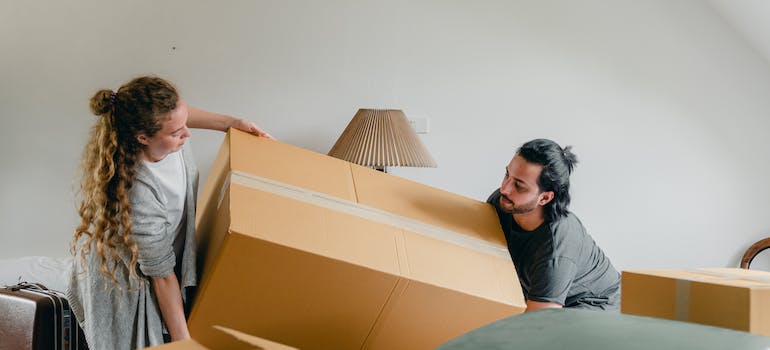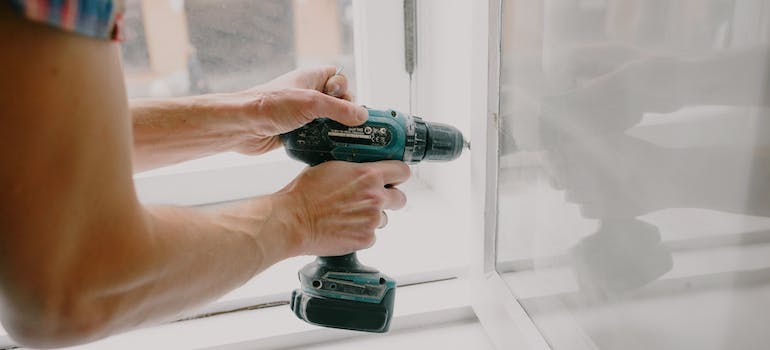It’s probably one of your biggest concerns and most important questions about relocation: how much is it going to cost? The answer to that will affect many choices you make during the move. It may even make you reconsider the very decision to move at all. So before you jump into the deep end and start researching for your movers, you should know how to calculate your moving expenses and prepare and review your budget. Best Movers in Florida is meant to help you do that easily and accurately.
Define the Parameters of Your Move
Each move is different. Moving expenses reflect these differences because they depend on a variety of factors whose combination is unique to each relocation. So the first step to calculating your moving expenses is defining the move itself. Think about how far you’re moving, how much stuff you’re taking with you if you will need relocation assistance Florida or do most of the work yourself, and whether you will need any special services for pets, plants, collectibles, or something similar.

Local vs. long-distance moving
Probably the biggest factor in your moving expenses will be how far you’re relocating. Different states and indeed different moving companies will sometimes draw the line between a local and a long-distance move at a different number. But generally speaking, a local move stays within 100 miles. Everything over that is usually considered long-distance moving. The major difference is that a local move is charged by the hour while the cost of a long-distance one is based on the weight of the shipment. Naturally, a local move will cost you far less.
Start With a Moving Checklist
Creating a moving checklist tops the list of moving must-dos. This essential step ensures you stay organized and on track with every detail of your move. Start by listing every task, from hiring local movers Florida to updating your address. A comprehensive checklist helps you manage your tasks efficiently, preventing any overlooked expenses. It acts as your roadmap through the moving process, guiding you through each step and helping you keep an eye on both big and small tasks. Include deadlines for when you need to complete each task to keep your move on schedule. Remember, a well-planned move reduces stress and avoids last-minute rushes. By prioritizing your tasks, you can allocate your time and resources more effectively, making your move smoother and more manageable. This simple yet powerful tool is your ally in navigating the complexities of moving, ensuring nothing gets missed and everything goes according to plan.

What Should You Consider to Calculate Your Moving Expenses
The truth is that you can never really calculate your moving expenses in advance with 100% accuracy. Relocation is an unpredictable beast. You can’t anticipate everything. But you can come up with a decent estimate of what you’ll spend. That should then help you organize your budget and avoid unpleasant surprises!
Use the average cost of moving to calculate your moving expenses
The average cost of moving is just that – average. It won’t tell you exactly what you’ll spend on your specific relocation how much cheaper your move might end up or just how high the price can go. Still, it can give you a pretty good idea of what to expect.
According to the American Moving and Storage Association, the average cost of a long-distance move is around $4,300 while the average cost of a local move is about half that, $2,300. Calculations are based on the weight of 7,400 pounds (with a distance of 1,225 miles and the rate of $200 per hour for 4 movers respectively).

Factors to consider when estimating your relocation costs
The biggest problem you’ll come across when you start to calculate your moving expenses is the fact that they aren’t simple. There are so many different things that combine into your final cost:
- how far you’re moving
- how much stuff you’re bringing
- if you’re hiring movers
- the moving, packing, and storing services you’re using
For example, if you’re moving to Orlando with some of the best movers Orlando, even these professional movers cannot simply look at a home and give you an accurate estimate. Instead, it’s necessary to consider several different factors. So let’s break them down, shall we?
The distance of the move
The distance you’re moving to plays a key role in your moving costs. Not only are long-distance moves more complicated and expensive by nature, but they are, as we’ve previously explained, also charged differently. If you’re moving long-distance or across state lines, you want to think in terms of weight. The heavier your stuff is, the more expensive the move will be. For example, the average cost of moving with best Tampa movers from Miami to Tampa, averages from $986 to $2,816. This is considered a long distance move since the distance between these two cities is 272,2 mi. On the other hand, if you’re moving locally, you should be thinking in terms of time. The less time it takes to pack and unpack, load, and unload your possessions, the less money you’ll spend.
The size of the move
Either way, you slice it, the size of the move will be a major factor in your moving costs. Whether we’re talking about the weight of your possessions or the time it takes to move them, you’ll spend more money the more stuff you have. So if you want to save up, it might be time to sell or donate some of your things! For example, moving from Cape Coral to Miami with the help of best Miami movers costs:
- a studio apartment costs around $430 to $530
- one bedroom apartments costs around $660 to $830
- two-bedroom costs around $930 to $1,160
- three-bedroom costs from $1220 to $3,000

The movers (or lack thereof)
Hiring movers is the most expensive part of the move. And it may seem like doing it all yourself is cheaper. But the costs of a DIY move pile up. Between renting the van, paying for gas, and getting all the packing materials you’ll need, you may just end up paying about the same. Either way, these costs will eat up a good chunk of your budget.
The additional services
Of course, any additional moving services mean additional costs. This includes packing and unpacking, storage, packing materials provided by movers, and any specialty moving you may require.
Packing supplies add up
Packing supplies quickly becomes a major part of your moving expenses. Essentials like boxes, tape, bubble wrap, and markers are necessary to protect your belongings. To cut costs, seek out free boxes from local stores or friends who have recently moved. Many shops are willing to give away sturdy boxes that would otherwise be recycled. This approach not only saves money but also supports recycling efforts. Remember, the quality of packing materials can impact the safety of your items. Therefore, invest in good-quality tape and bubble wrap to secure your valuables. Planning and collecting supplies early prevents last-minute purchases, which often come at a premium. By being resourceful with where you get your packing supplies, you can significantly reduce the overall cost of your move.

Don’t forget the small details
Small expenses often go unnoticed but can quickly add up during a move. Items such as cleaning supplies for your old and new place, more frequent meals out due to packed kitchenware, and possible storage services if your new home isn’t ready, can stretch your budget. It’s smart to allocate a portion of your moving budget for these unexpected costs. For example, cleaning supplies for a thorough move-out might cost around $20-$50, depending on what you already have. Eating out can easily add $10-$20 per meal per person to your daily expenses. If you need temporary storage, fees can range from $50 to over $200 a month based on the size and location. Planning for these small details helps prevent surprises and ensures you have a realistic budget for your move. This careful consideration keeps you on track financially and reduces stress during this busy time.
Travel expenses also matter
Travel expenses play a crucial role in the budget for long-distance moves. These costs can vary widely, including hotel stays, meals while on the road, and gas for those driving to their new home. For individuals flying, it’s important to account for the price of airline tickets and any additional fees for transporting pets. For example, a one-way plane ticket can range significantly based on distance and time of booking, and pet transport fees can add an extra $100 to $200 to your travel costs. Hotel stays can cost anywhere from $50 to over $150 per night, depending on location and comfort level. Gas expenses depend on the distance and fuel efficiency of your vehicle, with cross-country drives potentially costing several hundred dollars in fuel alone. Budgeting accurately for these travel expenses ensures you won’t face unexpected financial strain during your move, making the transition more manageable.
Home repairs and renovations
For new homeowners, the excitement of moving can quickly become overshadowed by the reality of necessary repairs or desired renovations. Before settling in, it’s crucial to assess your new home for any immediate fixes or upgrades you envision. This initial evaluation can reveal needs ranging from minor repairs, like leaky faucets or peeling paint, to major renovations, such as updating an outdated kitchen or bathroom. Setting aside a budget for these projects is essential. For example, minor repairs might only require a few hundred dollars, but major renovations can easily run into the tens of thousands. Understanding these costs upfront allows you to plan financially and prioritize projects based on urgency and budget. Allocating funds for both necessary repairs and desired improvements ensures that your new home not only becomes safe and functional but also aligns with your taste and comfort.

Get a free estimate to help you calculate your moving expenses
A good way to calculate your relocation costs is to get a free moving estimate before you even choose your movers. Even if you don’t end up going with a moving company, their moving quote will help you figure out how much you’ll spend. After all, they base it on the same factors: the distance, the size, and the material you need.
Reconsider Your Budget After You Calculate Your Moving Expenses
Estimating the cost of the move is just the first step. You still need to figure out how to cover that cost! So it may be a good idea to take a look at your budget again once you calculate your moving expenses. Do you have enough for everything you’ve planned? And how can you save some money without sacrificing the quality of the relocation? These questions will be easier to answer once you have a better grasp of the kind of expenses you can expect. Just don’t forget to set aside a bit more than you think you’ll need – you never know when it may come in handy!
